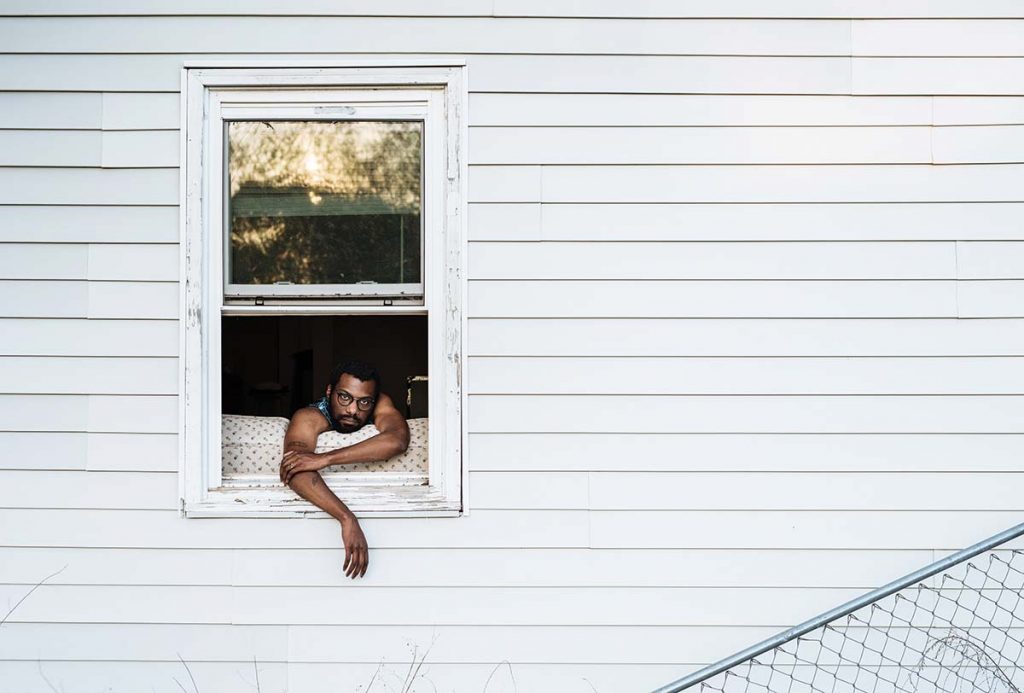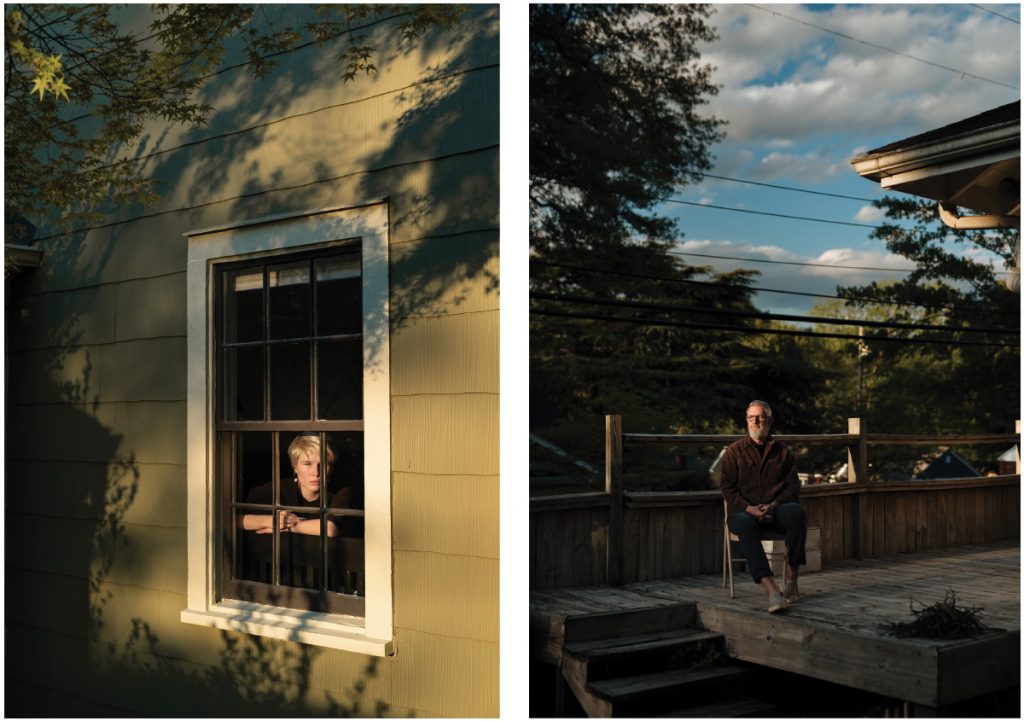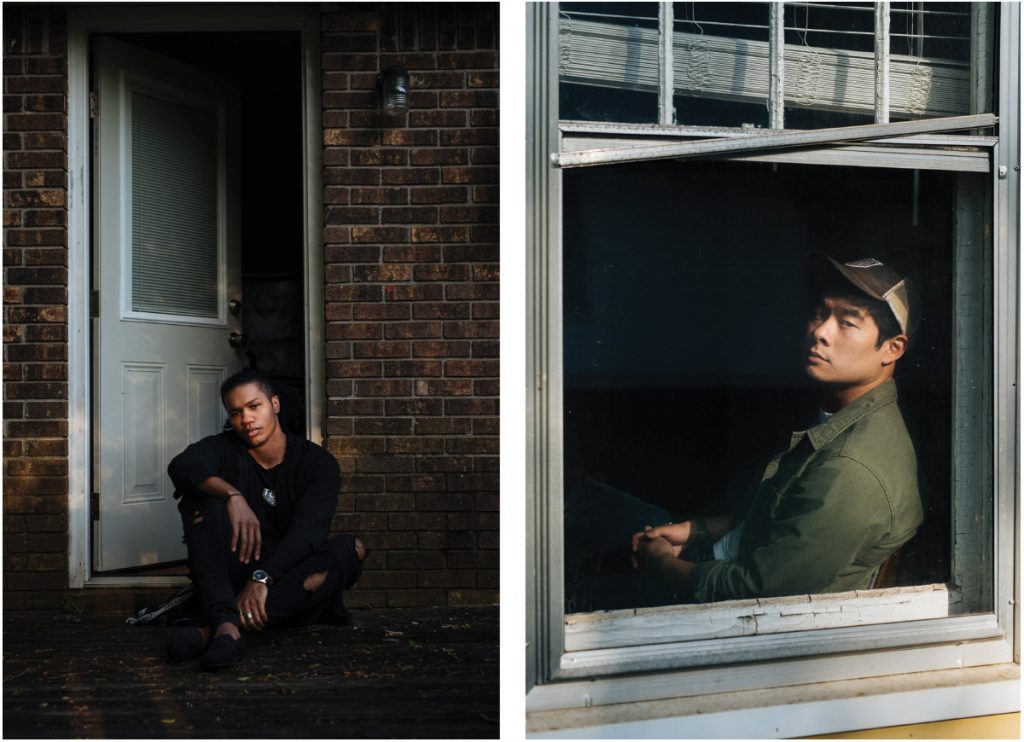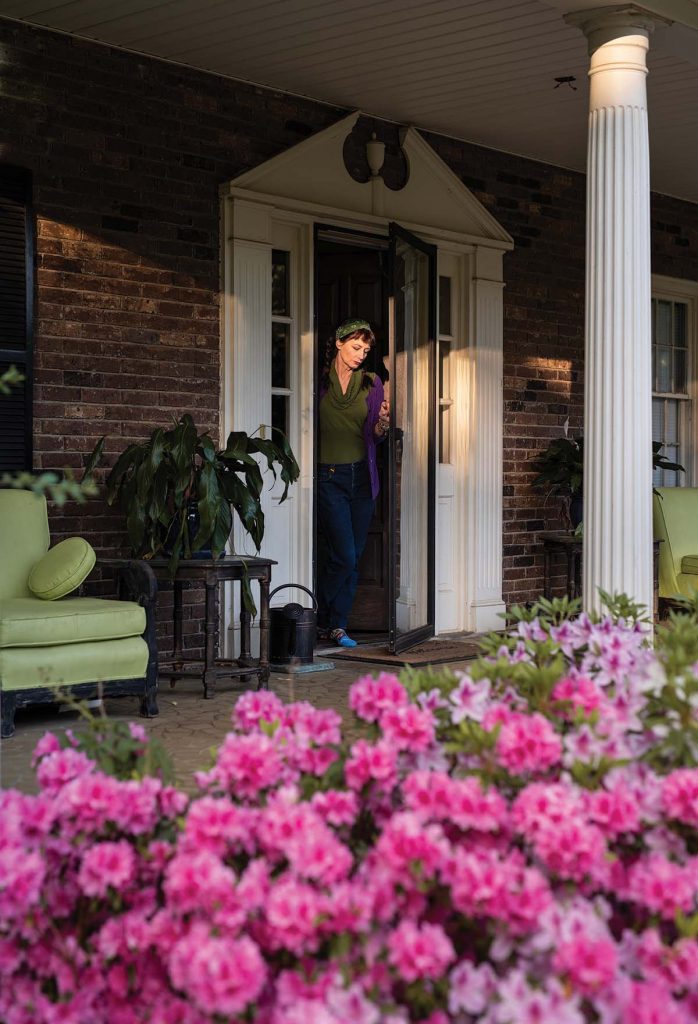
While we continue to navigate our way through unprecedented levels of sickness and social fragmentation, the haunting photographs of Greenville-based photographer and Asheville Made contributor Will Crooks capture the uncertainties and isolation of the times, the subjects separated from the viewer by windows, walls, or other barriers. Inspired by You Can’t Go Home Again — the posthumous novel of Asheville’s most iconic author, Thomas Wolfe — Crooks’ portraits, taken in the early days of the pandemic, explore the shifting meaning of Wolfe’s words. Asheville Made talked recently with Crooks about the series.

There’s such an intense loneliness in these pictures. What visual elements did you choose to convey that feeling?
The sense of loneliness captured in these portraits is drawn out of not just physical barriers and distance but also through the emotions present in the expression and body language of each subject. The time of day and the quality of light in which these images were made is extremely particular, as well. I chose to photograph at the first hour of light and last hour of light of the day to give the images more of an atmosphere and mood that’s cinematic. There’s a certain surrealism the images impart to the viewer.

How were your subjects in each of the portraits chosen?
I wanted a component of this project to be a means of safe connection with the artistic community I call family in my town. The individuals in these images are my friends and family in the arts community. I wanted a sense of intimacy to exist simultaneously with a sense of loneliness. I was interested in creating this seeming dichotomy that could exist in a single image and a single individual, and to create that juxtaposition of feelings I felt it was essential to photograph those close to me. I chose to photograph only one person in each image to create a physical representation of the isolation every individual is experiencing in at least some facet of their life, regardless of their living arrangements.

How would you have photographed differently is you had chosen a more populated urban area, one more hard-hit by the pandemic?
This work would not even exist if I had been living in a large urban area. I feel the narrative of the large metropolises is already being told through so many photographic lenses. I believe if based in, say, New York or Chicago, I would have turned the lens inward rather than outward and would have focused on photographing the home experience of my partner and myself. I also believe the lack of photographs I had seen of the experience of the pandemic in smaller cities and towns is another element that led me to believe deeply in the value of creating such work.

Has the meaning of Wolfe’s sentiment changed for you these past few months?
During the COVID-19 pandemic, our homes have become both places of refuge but also cages of isolation. We are in our most familiar spaces but we occupy them in a manner that is foreign to us. This series of photographs has always been meant to force the viewer to consider the idea of home and whether it exists as a physical place, a community, a single person, or something else entirely. Home as an idea exists for me as a sense of safety and love.
Will Crooks, Greenville. “You Can’t Go Home Again” can be viewed online at willcrooksphoto.com.
Beautiful! Thank you for sharing. This is US.